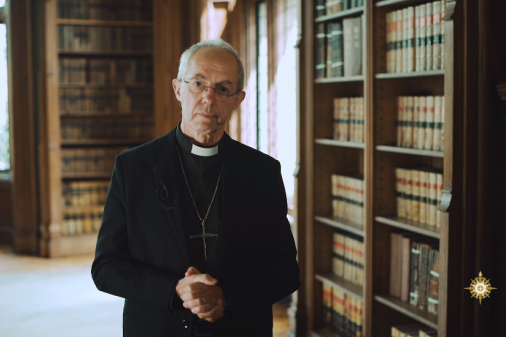
The Archbishop of Canterbury has apologised to Anglican leaders in Ghana after publicly criticising their support for a Bill criminalising LGBT relationships without speaking to them first.
Archbishop Justin Welby said in a statement last month that he was "gravely concerned" by the support of the Anglican Church of Ghana for the Bill, which also makes it a crime to advocate for LGBT rights.
The statement reminded Ghanaian Church leaders of Resolution I:10 of the 1998 Lambeth Conference, which assures LGBT people "that they are loved by God and that all baptised, believing and faithful persons, regardless of sexual orientation, are full members of the Body of Christ."
Welby said it was his intention to meet soon with leaders of the Anglican Church of Ghana to raise his concerns with them directly and Lambeth Palace confirmed on Friday that this meeting had now taken place.
It was held online on 3 November and joined by the Anglican Archbishop of Ghana, Cyril Kobina Ben-Smith, as well as several Ghanaian bishops and clergy.
During the meeting, they discussed the draft Bill and Welby apologised for failing to speak to them about his own views before issuing his statement.
"I welcomed this conversation, which should have happened before my previous statement. That is not mere diplomacy: Christ commands us to speak directly and prayerfully with our brothers and sisters. I apologised for failing to do so," said Welby.
"We affirmed that the 1998 Lambeth Conference Resolution 1.10 represents the last and most widely accepted statement by the Anglican Communion on the question of human sexuality.
"We agreed that all human beings are made in God's image and are worthy of love, respect and dignity, and that the Church of Jesus Christ is called to demonstrate the love of God by protecting all vulnerable people and communities."
Archbishop Welby ended with a commitment to speak with leaders of the Anglican Church of Ghana before making future statements.
"This was a conversation between equals: I have no authority over the Church of Ghana, nor would I want any," he said.
"I say that partly because of Britain's colonial history in Ghana, but also because of the very nature of the Anglican Communion. We are a global family of churches who are autonomous but interdependent: a holy, catholic, apostolic Church bound together by history, sacraments, liturgy, and the love of Jesus Christ for each and every person.
"One of the key conclusions of the meeting is that human dignity is always paramount, and that cultural, social and historical contexts must also be considered and understood.
"I encourage continued good conversation with the Anglican Church of Ghana, with the same courteous but clear and robust conversation as I experienced, ahead of any future public statements."













